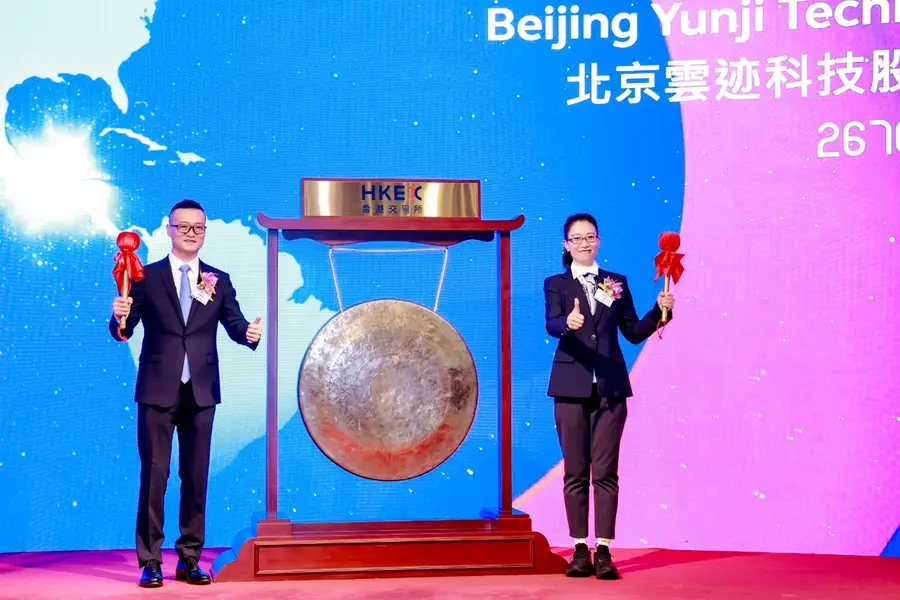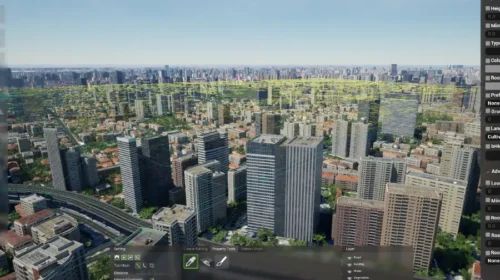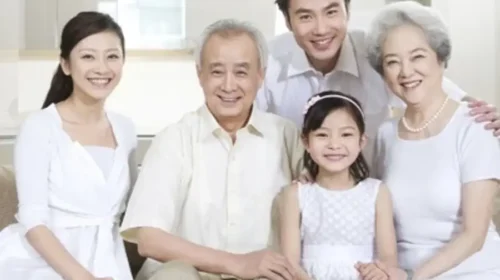Yunji rolls out red carpet for investors with Hong Kong IPO

The maker of scenario-based, AI-empowered robots, mostly used in hotels, raised about $76 million, as it becomes the first maker of flexible, service-based robots to list in Hong Kong
Key Takeaways:
- Yunji raised about $76 million in its Hong Kong IPO, with a majority of funds earmarked for R&D to expand its portfolio of AI-empowered robots and service agents
- The company has garnered backing from a diverse group of major investors, including Alibaba Group, Lenovo Group, Tencent, and FountainVest Partners
By Doug Young
Ever wonder who made that robot that assisted you with your check-in or delivered food to your room during your last hotel stay? The answer could quite possibly be Beijing Yunji Technology Co. Ltd. (2670.HK), which has quietly carved out a place as China’s leading supplier of scenario-based robots providing a growing range of services in hotels, such as in-room service, on-demand item delivery, guest assistance and fulfilling service and maintenance requests.
Now, that same company is hoping investors will check in to its stock with its new Hong Kong listing on Thursday, welcoming them down a red carpet whose A-list of previous backers have included leading names such as Alibaba Group, Lenovo Group, Tencent, Qiming Venture Partners, Trip.com, and FountainVest Partners, among others.
The IPO makes Yunji the first to list in Hong Kong from an emerging generation of companies providing robots to perform services in venues like hotels, commercial buildings, healthcare facilities and factories. While Yunji is losing money, like many of its peers, it’s being allowed to list under a two-year-old Hong Kong Stock Exchange rule allowing IPOs by “specialist technology” companies that would otherwise fail to meet the usual profitability requirements. Notably, it is the first listing under that rule, called Chapter 18C, this year.
Unlike traditional robots with limited mobility and mostly performing the same tasks on factory assembly lines, Yunji’s products include both hardware and AI agents that can perceive external input, digest it and make decisions in more flexible environments. The company describes its robots as “limbs” of its intelligent agent, with its AI digital systems as the “brain.”
Yunji says its products were performing tasks at more than 34,000 hotels and 150 hospitals by the end of last year, with its robots completing over 500 million service operations in 2024 and executing over 18.6 billion commands in December 2024 alone.
The company formally launched its listing on Oct. 16, selling 6.9 million shares for HK$96.50 apiece, generating roughly HK$590 million ($76 million) in net proceeds, according to its filing with final terms of the IPO. The shares made their Hong Kong trading debut on Thursday, and opened 49% higher at HK$142.80 on their first trading day.
About 60% of the IPO proceeds will go to R&D, as Yunji eyes a number of directions to boost its business. Chief among those is greater penetration into China’s market for hotel-based robots that is its main revenue source as the Chinese hotel market – one of the world’s largest – currently boasts very low penetration rates for such robots.
The company also wants to bolster its business for scenarios in other sectors, including office buildings and healthcare facilities, and through potential collaboration with food delivery companies. Last, but certainly not least, is global expansion, as the company tries to move beyond its home China market that currently accounts for more than 99% of its sales.
Moves in any or all of those directions could add momentum to Yunji’s growth, which is already in relatively strong double-digit territory. And equally important, while it’s still losing money, the losses are narrowing, and Yunji’s growing economies of scale look likely to lift the company to profitability on an adjusted basis in the not-too-distant future.
With roots dating back to 2014, Yunji is one of the older companies in the fast-evolving space for robots that use AI to think and perform complex, scenario-based tasks that are often labor intensive, relatively routine, or too dangerous for humans. It was one of the world’s first companies to launch a fully autonomous closed-loop learning system for service agents, which includes perception, cognition, decision making, action and feedback, according to third-party material in its latest listing document.
Big addressable market
Yunji sees one of its biggest opportunities in simply selling more to the thousands of hotels in a vast Chinese market where most properties have yet to discover the use of robots in their daily operations. China’s total addressable market for hospitality robotic-based AI agents last year was worth an estimated 420 billion yuan ($59 billion), according to a third-party analysis in Yunji’s listing document. Yet actual sales to that market totaled just 3.7 billion yuan last year – a tiny fraction of the addressable market – signaling room for significant gains.
Yunji is currently the leader with about 6.3% of that market, according to its prospectus. The company averaged annual revenue growth of 23% between 2022 and 2024, while the figure rose 19% in the first five months of 2025 to 88.3 million yuan from 74.3 million yuan in the same period a year earlier. About three-quarters of Yunji’s revenue comes from robots and functional kits. The rest comes from AI digitalization systems, whose contribution has grown steadily from just 16.4% of revenue in 2022 to 25.6% in the first five months of this year.
Yunji still conducts the bulk of its sales directly, but is also increasingly relying on third-party distributors to reach hotels in China’s harder-to-reach smaller cities.
While such distributors tend to lower a company’s profit margins due to their middleman status, Yunji’s overall profitability has been improving steadily as it gains experience and economies of scale. That shows up in its gross margins, which improved steadily from 24.3% in 2022 to 43.5% last year, though the figure slipped slightly to 39.5% in the first five months of this year. As it gains scale, the company’s R&D spending has also dropped steadily to 23.4% of revenue last year from 42% in 2022.
Overseas sales are still miniscule for Yunji, accounting for less than 1% of its revenue. But the company notes that its products have been deployed in over 20 countries and regions outside China, and says it is eyeing specific expansion opportunities in Southeast Asia and Japan. The latter, in particular, could have big potential as hotels and other property owners seek robots amid labor shortages as the country’s population rapidly ages.
On its bottom line, Yunji’s net losses have narrowed over the last three years, falling from 365 million yuan in 2022 to 185 million yuan last year. Its adjusted loss, which excludes employee stock compensation and changes in the value of financial instruments, narrowed even more from 234 million yuan to 27.6 million yuan over that period, and totaled 26.8 million yuan in the first five months of this year. That seems to show that profitability is within sight, at least on an adjusted basis, as the company completes its journey across the IPO finish line.
The Bamboo Works offers a wide-ranging mix of coverage on U.S.- and Hong Kong-listed Chinese companies, including some sponsored content. For additional queries, including questions on individual articles, please contact us by clicking here
To subscribe to Bamboo Works free weekly newsletter, click here





